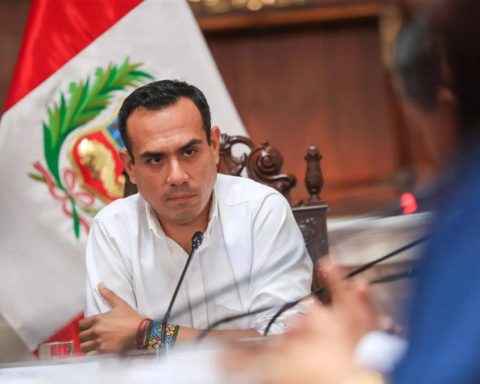November 23, 2024, 16:28 PM
November 23, 2024, 16:28 PM
In just a few years, the software development industry in Bolivia has become one of the pillars of the creative economy in the country, thanks to its accessibility and ability to adapt to the global market, presenting itself as an alternative to the current productive matrix. traditionally dependent on the extractive sectors.
“However, the disruptive potential of this industry still contains a series of challenges, which must be addressed in a comprehensive and creative way,” explain researchers Alex Ojeda and Valeria Peredo, authors of the study “Software programming in Bolivia.” which is part of the book “Creativity and entrepreneurship: new economies in Bolivia”.
The text, which brings together different research that presents an updated overview of the sector, was presented within the framework of the II International Forum of Creative Economy, organized by the Franz Tamayo University, Unifranz, Unifranz in Cochabamba.
Ojeda indicates that global connectivity has been key to expanding sectors such as entertainment, education and health, all of them driven by digital technologies. Unlike hardware, which faces high barriers to entry due to the costs of materials and technology, software requires less initial investment, which democratizes its access.
“Programming is an accessible industry; a programmer only needs a computer and knowledge. This field opens up opportunities even in countries in the global South such as India, Costa Rica and, of course, Bolivia,” he explains.
According to the Agency for Electronic Government and Information and Communication Technologies (Agetic), computer companies registered in Bolivia, dedicated to the commercialization of software, generate around 30 million dollars per year in exports.
In the commercial sphere, some Bolivian companies are dedicated to selling software abroad that includes business solutions, mobile applications, management systems, control and monitoring software, among others.
Cities like Cochabamba have become emerging poles of this industry, with local companies that have begun to attract attention in the international market. This advance has had a “demonstrative effect” on the local economy, encouraging new talent to join programming as a professional option.
Peredo indicates that, according to the research, Bolivian programmers are distinguished not only by their skills, but also by their young and highly trained profile. 74% of them have a degree in computer systems or engineering, although the software sector values practical skills as much or more than formal degrees. This flexibility makes it easier for programmers to enter the job market quickly, even without completing university studies.
In terms of working conditions, the majority of these professionals work in the private sector or as freelancers, and only a small percentage in the public sector, earning up to three times more than the urban average.
“On average, developers earn 7,500 bolivianos for 40 hours of work per week, this contrasts with what other sectors earn, for example, an urban worker in Cochabamba earns an average of 2,300 bolivianos for the same weekly work time. That is to say, a programmer earns up to three times more than other workers,” says Peredo.
Popular areas of specialization include web and desktop application development,
However, new technologies such as artificial intelligence (AI) and data science have not yet achieved significant development in the country.
Software development, although promising, faces important challenges, including low female participation. According to the study, 76% of programmers in Cochabamba are men, a figure that reflects a considerable gender gap compared to the urban workforce in general, where the distribution is much more balanced.
Another significant challenge is educational. The majority of Bolivian programmers come from private schools, indicating an urgent need to strengthen science and mathematics teaching in the public system. “To compete globally, we must close this gap and guarantee that all young people have access to quality training in technology,” emphasizes Peredo.
Ojeda, for his part, concludes that Bolivia has great potential to position itself in the creative economy through software, as long as some critical obstacles are addressed. For him, the industry must diversify beyond web development into areas such as mobile development and video games, sectors that in other regions already generate large income and are highly in demand.
“It is necessary to promote female inclusion, strengthen public education in science and technology, and adapt professional training to respond to the needs of an industry in constant evolution,” says Ojeda, underlining the importance of public policies that promote technological innovation.
With an increasingly digitalized global market, the software industry in Bolivia has the potential to become a disruptive and transformative player, driving the country’s creative economy towards a future of greater opportunities and inclusive growth.
















